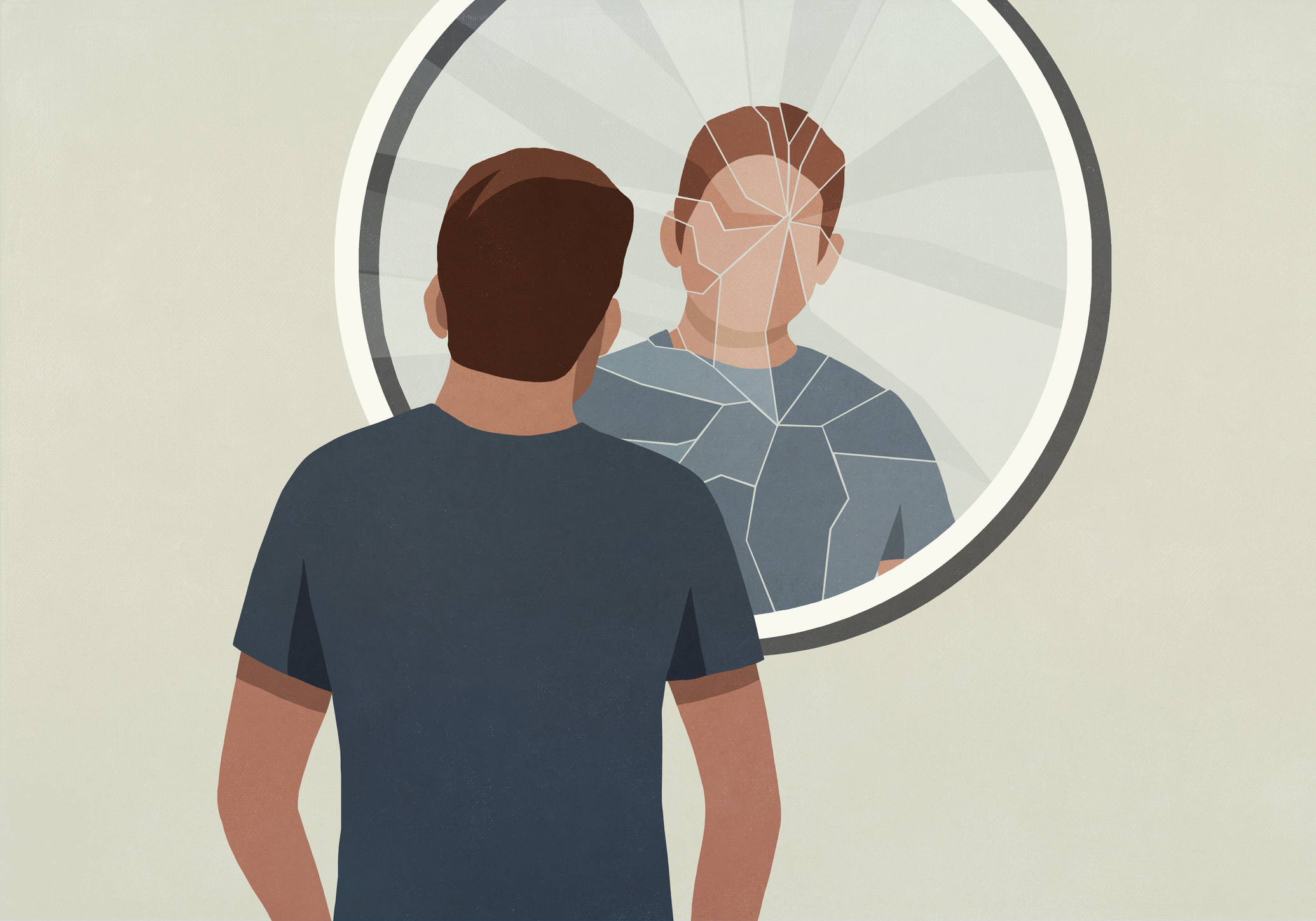Despite its theoretical pretensions, multiculturalism has come to be revealed as a phenomenon of mass technological and consumer society.
Don’t Hate Yourself

Reject the oikophobic temptation.
Why do well-educated, rich countries hate themselves so much? A recent book, Western Self-Contempt: Oikophobia in the Decline of Civilizations, gets to the heart of perhaps the most salient cultural and political phenomenon among Western elites in the last half century. Salutary and measured self-criticism—the hallmark of reason—has transformed into aggressive and pathological self-hatred, a self-hatred that has become obligatory among the bien-pensants. The author of the book, Benedict Beckeld, a middle-aged German philosopher who writes sprightly and elegant English prose, relates the multiple obstacles to his book even seeing the light of day. The oikophobes, those driven by hatred of our Western home, or what used to be called the West, refuse to acknowledge the legitimacy of naming such self-loathing for the pathology that it is. That which is obligatory cannot be named or criticized.
Beckeld rightly sees oikophobia as the “opposite extreme of xenophobia,” which is loathsome in its own way. But it is not our problem today, when the “Other” is celebrated (but only as a helpless victim) and where the nations that once made up the Western world are seen as uniquely guilty of every sin. Beckeld puts things very incisively in the opening lines of his book:
We in the West continually come across oikophobia. We see it when a schoolteacher tells the students that Western civilization has been uniquely evil in its pursuit of colonialization and slavery, with the implication that other civilizations have not engaged in such things; when a school named after Thomas Jefferson seeks to change its name because of concerns about racism; when a commercial for a Scandinavian airline insists that nothing is truly Scandinavian; when Western universities “decolonize” their departments to make them even less Eurocentric than they have already become; when the waving of one’s own flag is decried as xenophobic while other nations are encouraged to display pride in their cultures; when wild crowds tear down statues of their country’s founders.
This lucid and altogether accurate description of oikophobic self-hatred at work speaks for itself. I will leave a fuller discussion of Beckeld’s book for another occasion since this piece is not intended as a review of his book. Suffice it to say that perusing Beckeld’s provocative book led me back to the late Roger Scruton’s measured and pungent discussion of oikophobia in a book he wrote on environmental conservatism in 2010 (Scruton, along with Victor Davis Hanson also provided an endorsement for Western Self-Contempt).
Scruton was the first to apply the term oikophobia (widely used in psychiatry) to the realm of politics and political philosophy. Scruton does not succumb to Carl Schmitt’s troubling reduction of the human and political world to deep and abiding enmity between friends and enemies, nation and nation; with the Christian tradition he affirms the moral priority of “neighbor love.” But to love one’s neighbor one needs neighbors. That means, at a minimum, a political or national home to which we belong together. Charity begins at home and no one is a truly a citizen of the world, except in an abstract or metaphorical sense. The late modern world is riddled with ideologues who “loved humanity” while despising and degrading real human beings. A morally conceited but empty humanitarianism (and globalism) is thus the other side of totalitarianism.
In Scruton’s rendering, oikophobes deride “all the ordinary forms of patriotism and local attachment as forms of racism, imperialism or xenophobia.” An occupational hazard of the intellectual class, oikophobia mocks the concrete attachments and loyalties of decent citizens and human beings (the ground of all larger loves and loyalties) while lauding distant cultures and regimes about which they often know little. The student rebels in Paris in May 1968, and their assorted philosophical instructors from Sartre to Foucault, celebrated Chairman Mao in the midst of the murderous terrorist craze of the Chinese Cultural Revolution. Ignorance thus combined with moral and political obscenity. In the United States, Howard Zinn’s People’s History of the United States continues to sell like crazy and miseducates each rising generation in a mix of self-hatred and imbecilic para-Marxism that is truly worthy of contempt. As Scruton points out, political correctness is nothing other than mandatory anti-Americanism and Western self-contempt, and is tied to a “culture of repudiation” and negation “which spreads through school and academy all but unresisted by the guardians of traditional knowledge.” It is by no means a new phenomenon.
The true intellectual and moral antithesis of oikophobia is not xenophobia but oikophilia, a love of one’s own, tied to liberty and law, that actualizes the affections of citizens for a country and civilization worth preserving and passing on to new generations. For example, command-and-control approaches to ecological matters will inevitably be coercive and counterproductive, and necessarily ignorant of the “local” facts on the ground. But a patient and reasonable love of home can inspire common efforts rooted in social trust and local knowledge. Self-contempt can only lead to debilitating civic and moral indifference if not a totalitarian effort to negate everything good that has been passed on to us. Hatred inspires nothing constructive; the cultivation of civic affections allows even strangers to build a common world and to live in peace with one another. Conservatism, not humanitarian abstractions and virtue-signaling, promotes true neighbor-love and responsible civic engagement.
In an article in the Spectator from 2018, Scruton took aim at the cult of victimization (and the art of taking immediate offense) that is at the heart of oikophobia and the culture of repudiation. If one uses the wrong pronoun, beware; if one compliments or offends the wrong person, be prepared to have one’s personhood potentially expunged. The easily victimized lie around every corner. Even as our elites declare the West to be guilty of crimes and sins without precedent, the norms and decencies of our own tradition of civilized liberty must give way, in the dominant account, to everything foreign, transgressive, and contemptuous of common sense and received wisdom.
Scruton gives the instructive, and provocative, example of the burka—the covering of a woman’s face and body promoted by certain Islamic fundamentalists throughout the world. As Scruton puts it, we live in a “face-to-face society, in which strangers look each other in the eye, address each other directly and take responsibility for what they say.” To hide the face, to make it completely inaccessible, is to prevent access to the personhood—the soul—of another. It is also radically at odds with “the rights and privileges of citizenship.” Elsewhere, the contemporary French political philosopher Pierre Manent notes that in the Christian West, only the executioner covered his face. Scruton and Manent agree that the face-to-face encounter is at the heart of civic freedom and mutual moral accountability. It is a non-negotiable good of civilized existence.
Yet, today, we are asked to sacrifice that precious good in the name of not “othering the Other” or succumbing to Islamophobia. What a mad “transvaluation of values,” in Nietzsche’s words. It is considered an outrage of jingoism to ask for a minimal respect for our courtesies, traditions, and civilities—which have support not only in received tradition but in the best philosophical, theological, and political wisdom—while at the same time we genuflect before and marvel at the customs of the stranger. Scruton suggests that the “others” who take offense at the decencies of our Western tradition, and the pseudo-sophisticated intellectuals who justify them, need to lighten up. Their earnestness is both destructive of civilized norms and potentially deadly, as we have seen with Islamic extremism and more recent urban violence and mayhem. With laughter and self-criticism (not pathological self-hatred) free and decent men and women of different backgrounds can build a common home together, face-to-face in relative comity, even among those who begin their encounter as strangers. These are old truths that have been almost completely forgotten. They need to be recovered and renewed with vigor and insight.
The Franco-American literary critic and social theorist Rene Girard is famous for making scapegoating and “mimetic desire,” as he called it, a central theme of contemporary philosophical and cultural discourse. Girard saw scapegoating and victimization everywhere but, unlike the postmodernists and oikophobes, he emphasized the need for forgiveness rather than eternal enmity and strife. But in an interview in 2008, he denounced politically correct ideology as radicalizing the scapegoat mechanism. Political correctness, Girard charged, puts its proponents in the position of accusing their opponents of creating scapegoats, of victimizing others, as they reproduce the exact dynamic they denounce. Girard added that the politically correct say nothing about the victims of abortion and euthanasia, except to cheer their destruction. This movement of super-victimization that Girard diagnosed was nothing but “Christianity turned upside down,” scapegoating at the service of hatred and the negation of moral decency and civilized life. It was something that true Christians and all persons of good will must vigorously oppose.
In light of Beckeld’s, Scruton’s, and Girard’s considerable insights, it is time to repudiate repudiation, to affirm the value of home rightly understood and to criticize the critics of Western civilization who use criticism as a weapon at the service of hatred, enmity, and a moral nihilism (inseparable from moralistic fanaticism) that knows no rest. Let us reject the dark temptation of oikophobia once and for all.
The American Mind presents a range of perspectives. Views are writers’ own and do not necessarily represent those of The Claremont Institute.
The American Mind is a publication of the Claremont Institute, a non-profit 501(c)(3) organization, dedicated to restoring the principles of the American Founding to their rightful, preeminent authority in our national life. Interested in supporting our work? Gifts to the Claremont Institute are tax-deductible.
Just as it belongs to religion to give worship to God, so does it belong to piety to give worship to one's parents and one's country.
Jaffa was wrong about the root of today's academic problems.



